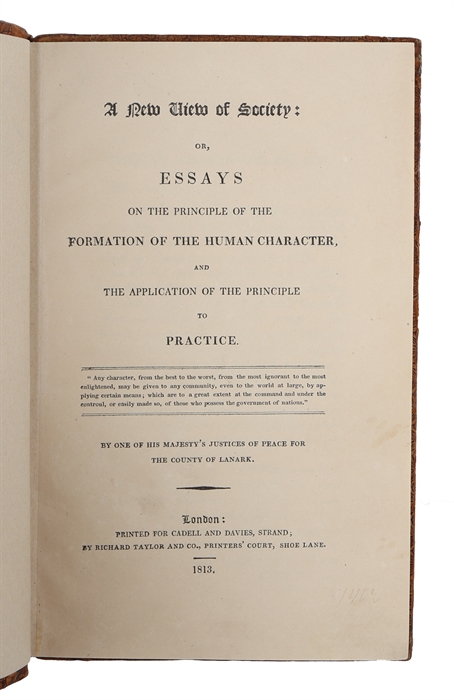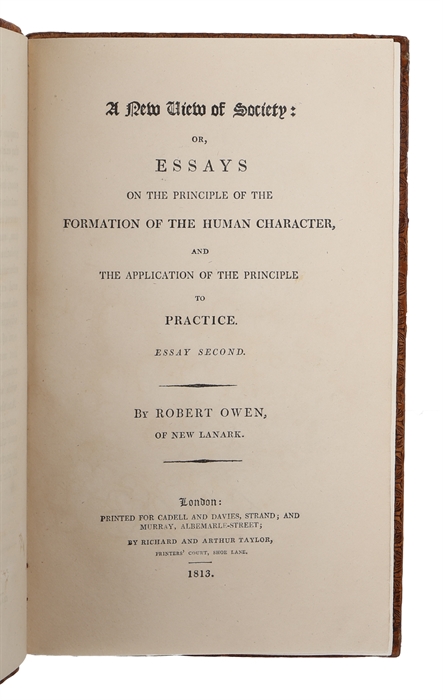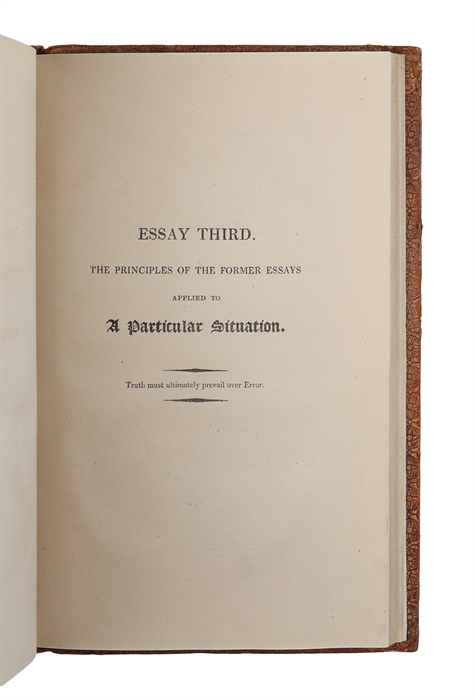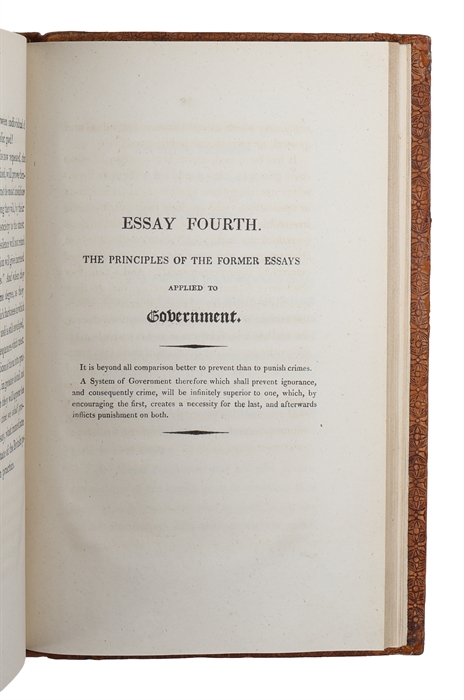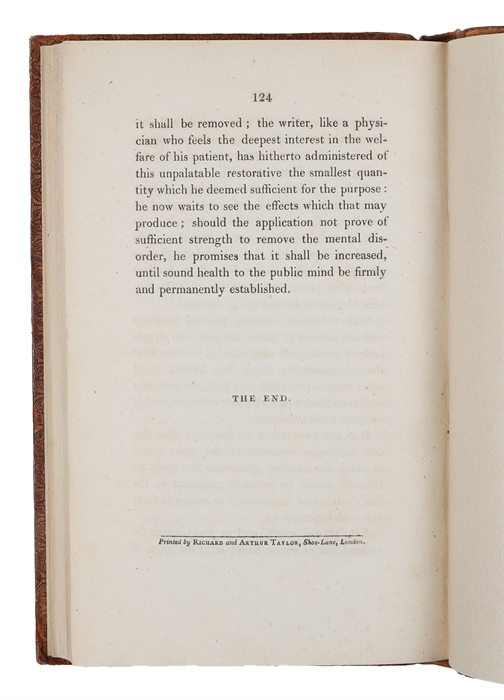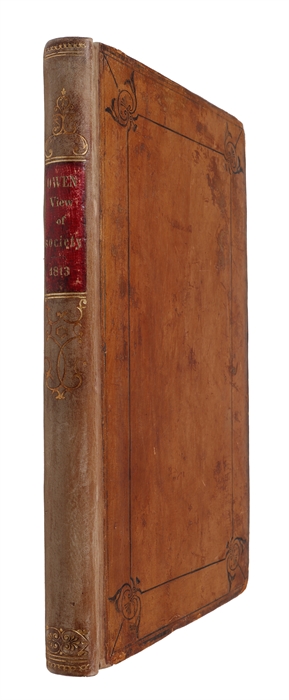FOUNDING SOCIALISM
OWEN, ROBERT.
A New View of Society: Or Essays on the Principle of the Formnation of the Human Character, and the Application of the Principle to Practice.
London, 1813 (-1816). (Part I:) Cadell and Davies by Richard Taylor and Co., 1813; (Part II:) for Cadell and Davies, and Murray by Richard and Arthur Taylor, 1813; (Parts III & IV:) (Printed by Richard and Arthur Taylor), (1816).
8vo. Lovely contemporary full calf boards with blindstamped frames made of single lines and ornamental corner-pieces. Double gilt line-border to boards. Gilding on front board very vague. Ornamental blindstamped inner dentelles. Neatly rebacked in style of the boards, with gilt ornamentation ond gilt red morocco title-label. End-papers renewed. 24; (VI),39 pp.; 1 f. (blank), 124 pp. Both half-titles to part III & IV included in the pagination. Some leaves evenly browned, but overall a very nice and clean copy (possibly washed).
Very scarce edition of Owen’s seminal four-part work, which constitutes “The Birth of Socialism”, parts I & II being the first printings, and II & IV presumably the second editions (after the privately printed 1814-edition of both parts, which were for private circulation), later used for the 1816 overall second edition of all four parts together (which is continuously paginated, 184 pp. in all). The copy corresponds to Kress B6194, where it is listed first, and Goldsmiths' 20855. Goldsmiths' notes “The first and second essays have separate title-pages and pagination. The third and fourth essays each have a half-title, but their pagination is continuous. There are a number of textual alterations in this edition of the third and fourth essays, most of which were adopted for the 1816 edition.” Parts I & II have separate title-pages and are separately paginated. The title-page of part I does not mention Owen, but the dedication to Wilberforce is signed Robert Owen in print on p. IV. The title-page of part II reads: A new View of Society, or, Essays on the Principle of the Formation of the Human Character, and the Application of the Principle to Practice. Essay Second. By Robert Owen of New Lanark. Parts III & IV each have a half-title, both included in the pagination, which is continuous. The half-title of Part III reads: Essay Third. The Principles of the Former Essays Applied to a Particular Situation, and states on verso: Printed by Richard and Arthur Taylor. The half-title of Part IV reads: Essay Fourth. The Principles of the Former Essays Applied to Government. "The theory of socialism has a long and distinguished history [...] the first practical statement of socialist doctrine came not from a theorist but from one who based it on practical experiment. Robert Owen became the manager of a cotton mill at the age of nineteen. He was brilliantly successful, not merely as a manager, but as an innovator, introducing the first imported cotton from America and improving the quality of the yarn. Before he was thirty he already had the experience, and the confidence born of it, to undertake his great experiment." (PMM). Having bought a factory with some of the poorest and workers’ quarters in the country and worst working conditions, Owen began improving conditions in all ways possible, including housing, working hours, education for the children (he founded infant schools in Great Britain), limitation of drinking, and he opened a store, where they could buy goods close to cost price. "'The Lanard Experiment' was a great success, and the mill ran a profit; nevertheless, Owen’s partners were dissatisfied at the cost of his social schemes and he was forced to dissolve the partnership and form a new company, in which Jeremy Bentham and William Allen, the Quaker philanthropist, were partners. It was at this juncture that A New View of Society came out. In it Owen laid down the principles which had determined his experiment. Having no belief in any kind of religion, he had thought out a new system of beliefs for himself. The chief points were that man's character is made not by but for him and that it has been formed by circumstances over which he has no control. The prime necessity in the right formation of character is therefore to place him under proper physical, moral and social influences from the very beginning. These principles - the fundamental irresponsibility of man and the effect of good early influence - lie at the root of Owen's theories and his practice. New Lanark continued to show their efficacy, and it became a model community, much visited by the statesmen of Europe… [T]he vitality of the word “socialism”, first coined by Owen about 1835, is testimony to the enduring value of his work" (PMM). PMM 271; Kress B6194; Goldsmiths' 20855
Order-nr.: 62589

